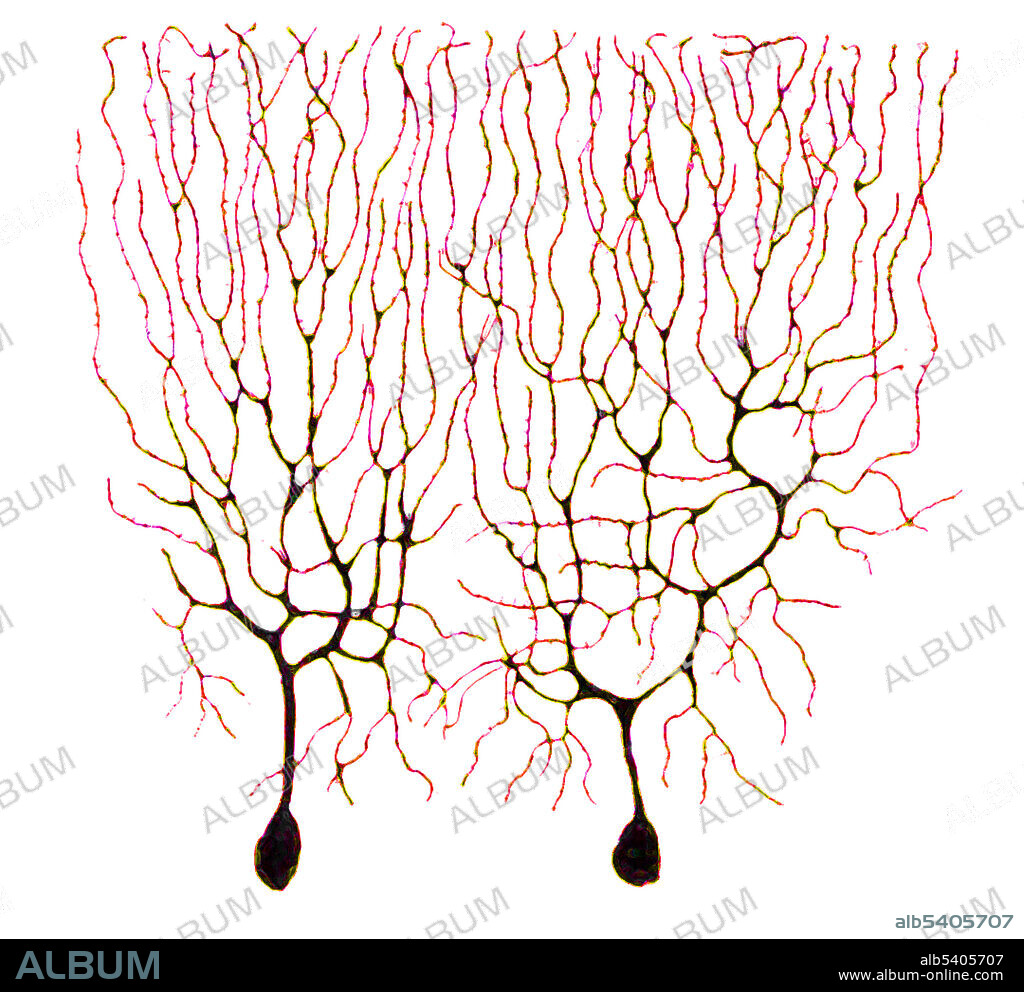alb5405707
Purkinje Cells Based on Cajal

|
Ajouter à une autre Lightbox |
|
Ajouter à une autre Lightbox |



Avez-vous déjà un compte? S'identifier
Vous n'avez pas de compte ? S'inscrire
Acheter cette image

Titre:
Purkinje Cells Based on Cajal
Légende:
Voir la traduction automatique
Cropped, colorized and silhouetted version of a Cajal drawing of Purkinje cells in the cerebellum of a pigeon, 1899. Santiago Ramón y Cajal (May 1, 1852 - October 17, 1934) was a Spanish pathologist, histologist, neuroscientist, and Nobel laureate. He was skilled at drawing, and hundreds of his illustrations of brain cells are still used for educational purposes today. His early work focused on the pathology of inflammation, the microbiology of cholera, and the structure of epithelial cells and tissues, before turning his attention to the central nervous system. He discovered the axonal growth cone, and provided the definitive evidence for what would later be known as "neuron theory". He provided detailed descriptions of cell types associated with neural structures, and produced excellent depictions of structures and their connectivity.
Crédit:
Album / Science Source
Autorisations:
Modèle: Non - Propriété: Non
Questions sur les droits?
Questions sur les droits?
Taille de l'image:
2100 x 1925 px | 11.6 MB
Taille d'impression:
17.8 x 16.3 cm | 7.0 x 6.4 in (300 dpi)
Mots clés:
 Pinterest
Pinterest Twitter
Twitter Facebook
Facebook Copier le lien
Copier le lien Email
Email
